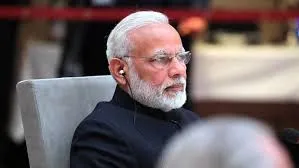At 75, Prime Minister Modi’s leadership reflects structural reforms, global ambition, and a drive to deliver inclusive growth

Wishing the Prime Minister good health and every success on his 75th birthday. It is a remarkable achievement to serve a third term as Prime Minister, presiding over a stable and successful government.
From the outset of this term, the Prime Minister’s vision was clear: to solidify India’s position as an economic powerhouse. He has pushed forward numerous structural reforms aimed at creating a resilient framework. Among them are the merger and recapitalisation of banks, the introduction of the Goods and Services Tax (GST), strengthening real estate regulation (RERA), facilitating Foreign Direct Investment (FDI) relaxation, and instituting the Insolvency and Bankruptcy Code (IBC). These measures have helped attract foreign capital and improve financial discipline.
National Programmes and Global Ambition
Complementing economic reforms, several national initiatives have become cornerstones of his leadership. The ‘Make in India’ campaign, Aatmanirbhar Bharat (self-reliant India), and Viksit Bharat (developed India) are not mere slogans, but efforts to reshape India’s industrial, technological and manufacturing base. They project India as independent, resilient, and globally assertive.
Another achievement of note is the creation of GIFT City, now emerging as a preferred destination for global finance. It reflects an ambition not only to enhance India’s domestic economy but also to position the country as a global financial centre.
Reforms Coupled with Social Delivery
Under the Prime Minister’s stewardship, recent years have seen strong growth in the provision of basic amenities to marginalised populations — electricity, sanitation, clean cooking fuel, housing and formal banking. Such infrastructure and welfare-centric interventions have helped bridge long-standing gaps. For example, the government claims that over 12 crore toilets have been constructed and around 15 crore households provided with tap water.
These reforms and programmes, taken together, show a comprehensive approach: economic liberalisation, institutional reform, welfare delivery, and international positioning. While challenges remain, ensuring inclusive growth, managing inflation, and balancing regional inequalities, the third term has already made its mark.
As the Prime Minister marks his 75th year, these achievements stand as testimony to his leadership’s enduring influence and the ambition to propel India towards stronger global relevance and prosperity.